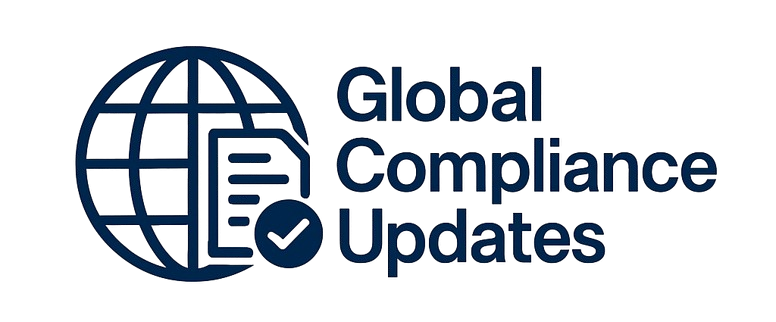The outcome of regulatory inspections is critical to an organization’s success. The FDA performs inspections to check that companies are maintaining compliance with applicable regulations and quality standards. Though you do your best to avoid it, receiving a 483 or Warning Letter is inevitable. It’s important to take the observations very seriously because you only have 15 days to submit the subsequent responses.
But ensuring that you are aware and understand what the regulatory agency is expecting in the response can be a challenge. What should you include? What are the risks of not submitting an appropriate response?
This 90-minute course will discuss the importance of developing and submitting a robust, timely response to FDA 483 observations or warning letters; as well as, educate the audience on the essential elements of a thorough response. Additionally, this course will review the proper structure of the response to ensure the regulatory agency’s expectations are met and the submission process.
LEARNING OBJECTIVES
At the completion of this session, you will be able to:
- Identify timelines and potential regulatory outcomes of not submitting an appropriate response
- Review the components necessary to develop a thorough response
- Utilize a response checklist
- Evaluate recent Regulatory observations and review associated responses
- Recognize the process for submitting the response to the regulatory agency
- Discuss when and how to provide follow-up updates to the regulatory agency post the initial response
- Develop post-response outcomes
WHO WILL BENEFIT?
This course will be valuable to anyone engaged in the development, manufacturing, sale, or distribution of FDA-regulated healthcare products. Additionally, this course will provide a good primer for those involved in writing observation responses. This includes personnel in:
- Quality
- Manufacturing
- Engineering
At the completion of this session, you will be able to:
- Identify timelines and potential regulatory outcomes of not submitting an appropriate response
- Review the components necessary to develop a thorough response
- Utilize a response checklist
- Evaluate recent Regulatory observations and review associated responses
- Recognize the process for submitting the response to the regulatory agency
- Discuss when and how to provide follow-up updates to the regulatory agency post the initial response
- Develop post-response outcomes
This course will be valuable to anyone engaged in the development, manufacturing, sale, or distribution of FDA-regulated healthcare products. Additionally, this course will provide a good primer for those involved in writing observation responses. This includes personnel in:
- Quality
- Manufacturing
- Engineering
Speaker Profile
 Kelly Thomas
Kelly Thomas
Ms. Thomas has over two decades of cGMP hands-on industry experience in both pharmaceutical and medical device manufacturing operations. Her experience covers all Quality Systems; as well as, all areas of validation; including, process/product validation, facilities validation, CSV and 21 CFR Part 11, test method validation, equipment/automated processes and cleaning validation.Utilizing strategic thinking, risk based approaches, and Lean principles, she has demonstrated success in steering and managing complex projects within the pharmaceutical and medical device industries.
Upcoming Webinars


Effective Communication: Ensuring Clarity, Accountability a…

2-Hour Virtual Seminar on Workplace Investigations 101: How…

Employers Should Prepare for Immigration Raids in 2026! Thi…

AI for Excel Professionals: Enhancing Productivity with Cha…

The Importance of the first 5 seconds when presenting

Negotiating Skills For Professional Results - Winning Strat…

Workplace Behavior in 2026: Tackling Conflicts and Incivili…

FDA Recommendations for Artificial Intelligence/Machine Lea…

Validation Statistics for Non-Statisticians

Bootcamp for New Managers and Supervisors: Develop These Es…


Interactive dashboards & analytics in Excel


Enhancing Project Management with Storytelling Techniques

4-Hour Workshop on Data Simplified: Sorting and Filtering, …

Creating Your 2026 Marketing Strategy

The Language of Leadership: Is Your Communication Style As …

ChatGPT for Innovative Business Advisory Services for Accou…


Utilizing A Proven Process When Conducting Sensitive, Inter…

How to Write Procedures to Avoid Human Errors

Human Factors Usability Studies Following ISO 62366 and FDA…

Why EBITDA Doesn't Spell Cash Flow and What Does?

Mastering DAX Patterns in the Era of AI & Copilot

Establishing Appropriate Quality Metrics and Key Performanc…


IRS Form 1099 Reporting: Compliance Requirements

FDA QMSR Explained: How the QMSR Replaces the QSR

How to Manage the Legal Landmine of the FMLA, ADA and Worke…

Understanding EBITDA – Definition, Formula & Calculation

Tattoos, hijabs, piercings, and pink hair: The challenges …

FDA Compliance And Laboratory Computer System Validation

Medical Device Hazard analysis following ISO 14971




Excel Spreadsheets; Develop and Validate for 21 CFR Part 11…

Excel + AI: The Smart User's Guide to Faster, Easier Work w…
